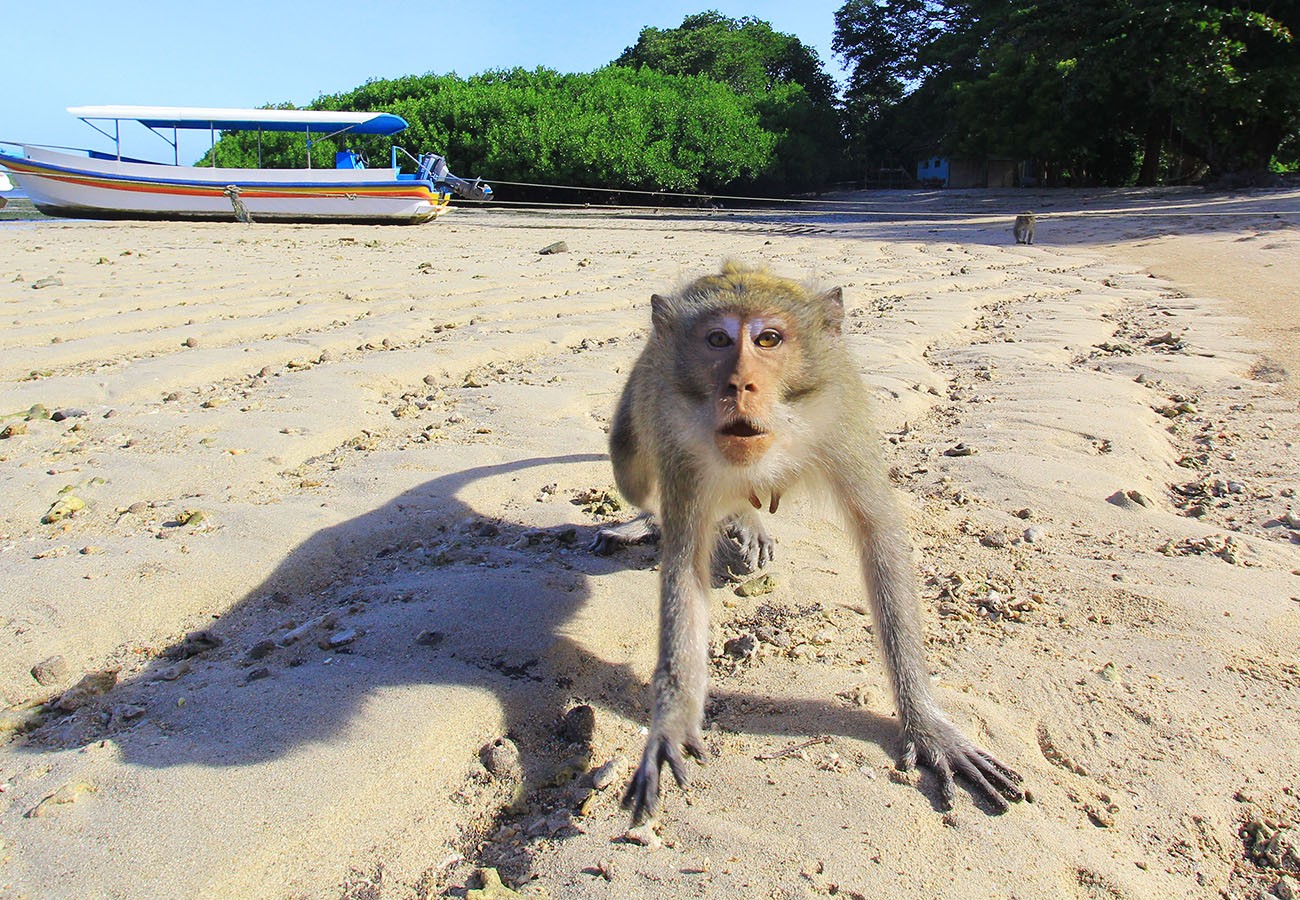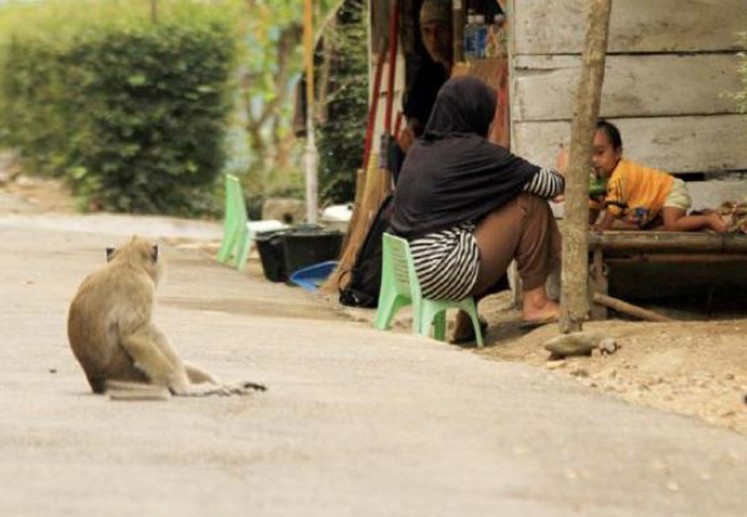Popular Reads
Top Results
Can't find what you're looking for?
View all search resultsPopular Reads
Top Results
Can't find what you're looking for?
View all search resultsBoyolali turns to Dayak people to combat monkeys
Hundreds of shooters had been deployed, but it was not enough to quell the enemy. Residents of Karanggede and Kemusu villages in Boyolali, Central Java, have asked people of Dayak ethnicity for help to combat wild macaques that have been a headache for the villagers in the past few months.
Change text size
Gift Premium Articles
to Anyone
Hundreds of shooters had been deployed, but it was not enough to quell the enemy.
Residents of Karanggede and Kemusu villages in Boyolali, Central Java, have asked people of Dayak ethnicity for help to combat wild macaques that have been a headache for the villagers in the past few months.
Monkeys have repeatedly raided farms and houses, wreaking havoc on crops, looting houses and injuring people.
Read also: Hungry monkeys pick crops clean in Wonogiri
Karanggede village head Sukimin said the Dayak people, who originated from Kalimantan, were believed to have special skills to deal with hungry primates. He said the idea was recommended by other villages that had experienced raids by monkeys.
“We leave the method to [the Dayak people]. We are now coordinating with the Boyolali regency administration to summon the Dayak," Sukimin said on Saturday.
Sharpshooters from the Army and the police, the Indonesian Target Shooting and Hunting Association (Perbakin) and the Natural Resources Conservation Agency (BKSDA), who were deployed to the area on Thursday, have failed to prevent the monkeys from entering the villages.
A monkey watches locals in Cikakak village, Wangon district, Banyumas regency, Central Java. (Kompas/Gregorius Magnus Finesso)"It is very difficult to anticipate their arrival. Bands of monkeys can suddenly come and steal crops. These monkeys have become more brazen," Sukimin said.
Residents have also used monkeys from Taru Jurug Zoo in Surakarta to lure the animals.
"The plan was to shoot the wild monkeys once they came to see the monkeys from the zoo. In the past three days, some of them did come but were very quick to flee once they saw humans," he added.
Read also: Deaths of Sumatran tiger cubs probed
Slamet Sukeri from the Central Java BKSDA said the monkeys would continue their raids until the dry season ended.
According to him, during the dry season, water and food sources in their natural habitat were scarce because of deforestation near the villages.
"For a long-term solution, the natural habitat must be restored, for example, by planting fruit trees," Slamet said. (bbs)











